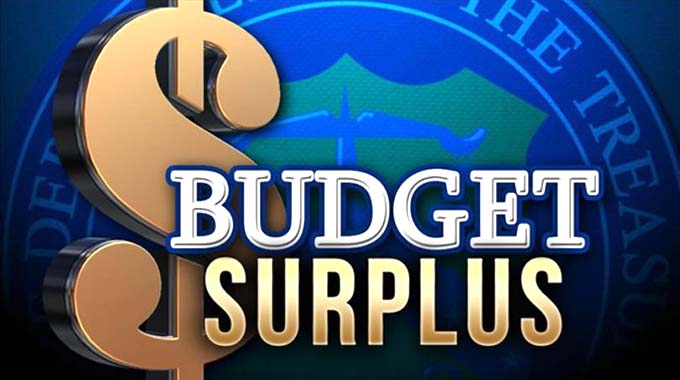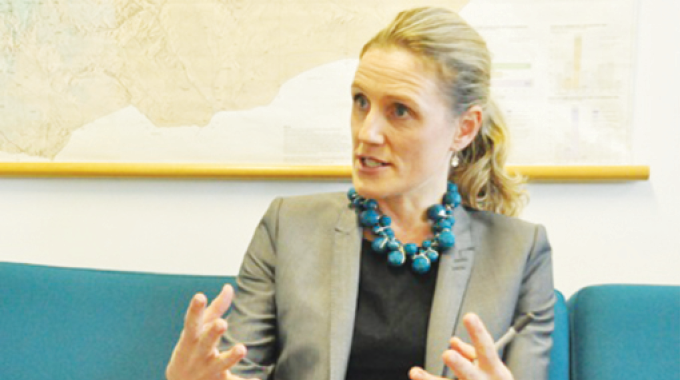Editorial Comment: Budget surplus shows we can cope with problems, grow fast

The Second Republic’s major fiscal achievement of balancing revenue and expenditure, that is keeping the budget in balance, is continuing as the “new normal” with a $9,8 billion budget surplus recorded in the first three months of this year.
This achievement is more remarkable considering that for well over half the three months, Zimbabwe was under an enhanced level four Covid-19 lockdown and the vaccination programme was being funded as a major additional health expense, with a commercial order for 1,2 million doses being placed and paid for.
The continuing, and enhanced, response to Covid-19 meant that revenue could have been squeezed as lower economic activity dampened tax collection with social spending, both on health and on support to the most vulnerable groups, having to rise.
In one respect, another set of reforms, upgrading the Zimra tax collection to minimise tax dodging and evasion, offset what could have been a decline in revenue.
A more efficient Zimra managed, in fact, to push revenue collection to $90,52 billion, just over $4 billion more than was budgeted, and that alone provided almost half the budget surplus.
None of us enjoy paying taxes, although we all like the services that Government pays for with the tax money, but it is easier to accept the need when we know that everyone else is now paying and honest tax-payers are not some sort of chump for not cheating.
Collecting more than expected in a downturn suggests that cheating had been worse than thought, and we can wonder just how much of our previous economic instability arose from dishonesty.
Tax cheating in the private sector is a bit like corruption in the private sector, moving resources that have been assigned to the public good into the pockets of greedy and selfish individuals.
Both need to be tackled with enthusiasm.
And there is an extra gain in getting everyone to pay what they are supposed to pay, in that it gives Minister of Finance and Economic Development Mthuli Ncube a bit of leeway when he comes to setting tax rates and certainly gives him more opportunity to enhance Government services and find a few dollars to pay public servants a bit more.
With economic growth, and the excellent harvests this year guarantee that, with Prof Ncube waxing quite lyrical in his report about the improved planting and the improved harvests, we not only get economic development, the bit of his ministry we sometimes forget about, but also more tax revenue and less social spending.
Small-scale farmers are very difficult to tax, starting with the fact that incomes are still low despite the commercialisation of that sector and then adding in the legal deductions that can be made by everyone in business, but the fact that they are now starting to have money in their pockets means that they will spend it, and Zimra at least collects the 14,5 percent VAT of what they spend, plus a slice of the extra profits generated by those who make and sell the goods and services the farmers buy.
On the other side of the ledger, the Minister will not be buying nearly so much food for people who would otherwise starve, and so can direct social spending to other areas, continuing to upgrade health and education services, and have a bit extra for the capital development that will help accelerate economic growth in a virtuous spiral.
That surplus in a difficult quarter also strengthens both the stability of our economy, and the expectations that the stability will continue.
Both are important. We have been through a lot of pain to get to where we are now, with low and still falling monthly inflation and a stable exchange rate, with that rate set by a real market, not by some bureaucrat sucking their thumb and writing down a number that probably had no basis in the real economic world.
While we are now moving from a concentration of effort on creating stability to a drive for national development, that fact that we are maintaining the stabilisation gains is as important as the fact that we are now looking at decent rates of growth.
While Prof Ncube stressed the dramatic falls in annual inflation, we also need to remember that this annual rate is not measuring something that is happening now, but largely something that has already happened.
Once the last of the figures generated by the appalling and spiralling price rises in the first seven months of last year are out of the calculations we will suddenly find our real and much lower annual rate.
The expectation of continued stability, and the growth of rules-based systems, is also important for the productive sectors.
They can concentrate on what they do best, making and selling more things, mining more metal and growing more crops, rather than devoting far too much of their energy to navigating the shoals of distorted and unstable fiscal and monetary systems or even trying to cheat.
The stability, and the guarantee of continued stability and even the budget surplus itself, also enhance our attractiveness for investment.
Those looking hard at Zimbabwe are now looking at a functioning economy, with the fundamentals fixed.
So they know that so long as they manage their new business properly they can make real profits and are not just dumping their investment in some deep well.
The surplus means that those already in the economy, and the newcomers, are also assured that the Government can continue doing its part, upgrading the infrastructure with better roads, better technical education, adequate power and water supplies and the like.
In some respects the Second Republic makes economic stability and economic growth look easy. It was not and is not.
But having fixed the fundamentals we are now starting to win the gains that result, with the Government able to press forward on growth rather than just recovery.








Comments